PUBLIC HEALTH CRISIS
Doctors support paediatrician’s account of collapse at Rahima Moosa as Gauteng Health officials push back
Doctors have spoken out in support of a recent open letter sent by paediatrician Dr Tim De Maayer to the Department of Health, detailing the devastating consequences a failing public health system is having on young patients. The acting deputy director-general of the Gauteng Department of Health, meanwhile, says there is no report from De Maayer that speaks to the allegations in his letter.
Doctors are speaking out in support of a recent open letter sent by paediatrician Dr Tim De Maayer to the Department of Health, detailing the ways in which children are bearing the brunt of a failing public health system.
In his letter, released on Sunday, 22 May, De Maayer described the situation at Rahima Moosa Mother & Child Hospital, where ongoing problems such as load shedding, water shortages and an overburdening of the system are affecting the health and lives of young patients.
De Maayer has been a respected member of the Rahima Moosa paediatrics department for well over a decade, according to Professor Ashraf Coovadia, the head of the department. Much of what De Maayer said in his open letter echoes what other doctors in the department have been talking about for several months.
“The worry and the fear is that we’ve seen a sort of spiralling downwards of services and how that [impacts] on patient care and our ability to provide that care. So, I support everything that he said and I think that it resonates with a lot of us,” said Coovadia.
Professor Haroon Saloojee, the head of the community paediatrics division at Wits University, said that he “wholeheartedly” agreed with the sentiments expressed by De Maayer.
“He’s highlighted the problems at one hospital but, I mean, anecdotally, I can tell you that it’s a problem that recurs at many, many hospitals, not only [in] paediatrics, but in many of the other departments as well,” he said.
This sentiment was echoed by Dr Louis Reynolds, a retired paediatric intensive care specialist and a member of the steering committee of the People’s Health Movement of South Africa, who said that the problems described by De Maayer were prevalent throughout the country.
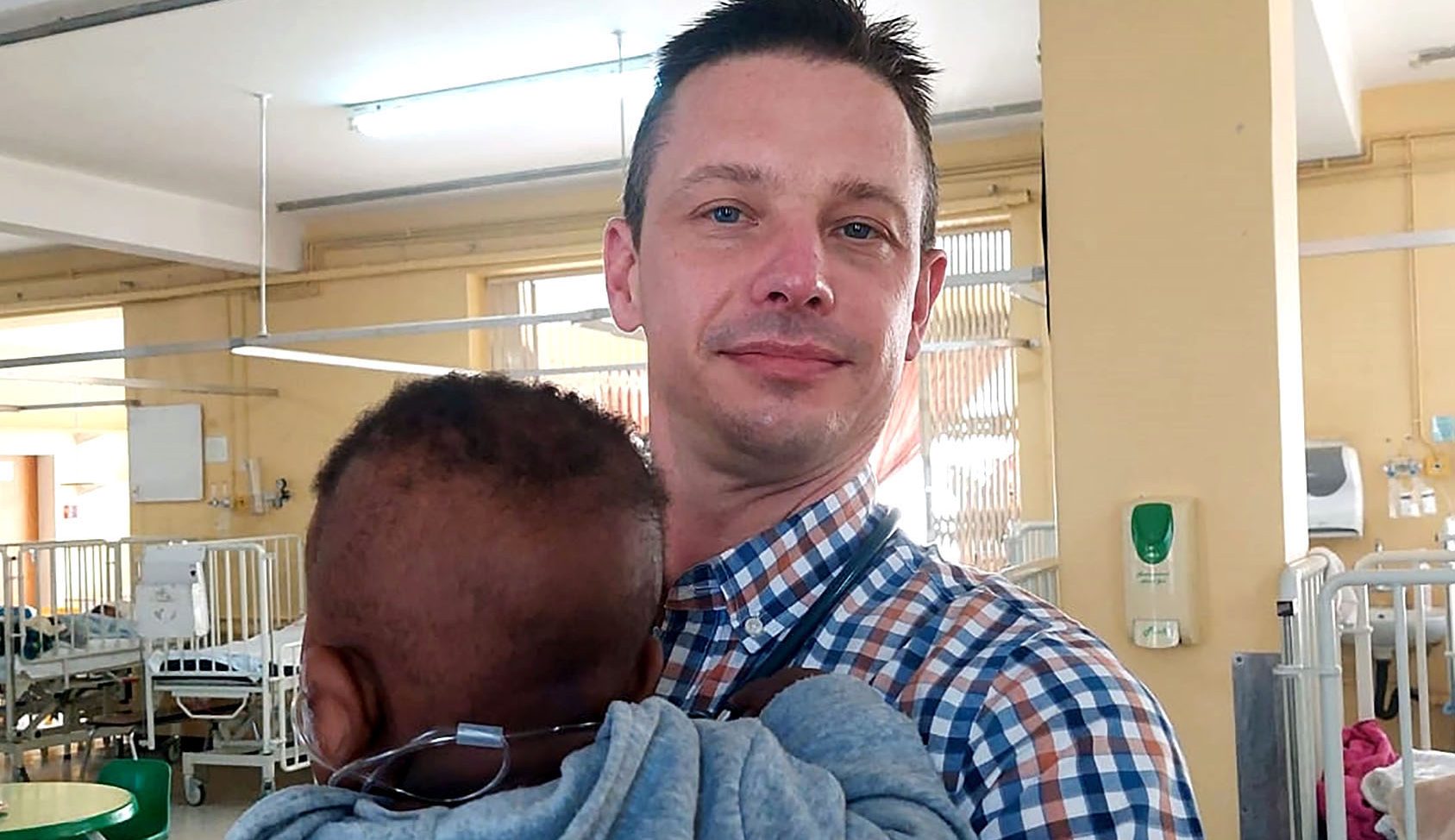
Dr Tim De Maayer is a paediatric gastroenterologist at Rahima Moosa Mother & Child Hospital. (Photo: Supplied)
“[De Maayer] had to do what he’s done,” he said. “This is what we have to do if normal channels don’t work, and he wrote that he’d been through the usual channels.”
The first priority in the wake of the letter should be addressing the issues at Rahima Moosa hospital, said Saloojee, as many of the problems De Maayer highlighted needed immediate attention. However, the bigger challenge would be ensuring that healthcare for children at hospitals in other settings improves.
“It’s great that Dr De Maayer has raised the flag, but we now have to find ways of engaging, and the problem is it’s not a new problem … this has been a perennial problem,” said Saloojee.
“It’s just that the situation seems to be deteriorating more in the last probably three or four years, simply because the human resource constraints have worsened.”
There have been engagements between the Gauteng Department of Health and management at Rahima Moosa since the release of the letter, according to De Maayer.
“I’ve been told that the Office of the Presidency wants the CEO’s response to the article. So, I think it’s gone up quite high in the hierarchy,” he said.
When Maverick Citizen reached out to Tyrone Seale, acting spokesperson for the President, about De Maayer’s letter, he said: “We are aware of the issue, and… the National Department of Health is assisting the [Gauteng] province in dealing with multiple issues affecting the health sector.”
Issues of power
Speaking during a Newzroom Afrika interview on Tuesday, the chairperson of the Gauteng Health Portfolio Committee, Mauwane Phaladi-Digamela, said that the acting deputy director-general (DDG) of the Gauteng Department of Health had assured the committee that no children had died at the Rahima Moosa Mother & Child Hospital because of electricity or generator failures.
“As overseer of the Department of Health, we were concerned with the report that babies were dying in that hospital,” said Phaladi-Digamela.
“Because of our role, then I immediately contacted the acting DDG to find out what is going on with this story, and the DDG … assured us that there are no babies who died because of the poor generators that are not kicking in.”
In his letter, De Maayer described instances in which doctors had to administer medical care to children by the light of their mobile phone torches, due to power failures. He also referenced an incident in which a child’s incubator went off because of load shedding.
“Our generators are unfortunately inadequately sized to supply the hospital,” he said.
Dr Freddy Kgongwana, the acting deputy director-general of the Gauteng Department of Health, told Maverick Citizen that he had provided the following statement to Phaladi-Digamela during recent engagements: “We don’t have a report from the Rahima Moosa [Mother & Child Hospital] doctor which speaks to what the doctor’s stated allegations [are] in his letter to the Daily Maverick.”
In his open letter, however, De Maayer stated that the issues at the hospital had been raised with management repeatedly, including in “two reports on the critical state of the neonatal wards and obstetric services in 2016 and 2021, and a more recent letter on 11 April 2022 detailing the disastrous state of the hospital”.
A system ‘intact’?
On Tuesday, the Gauteng Department of Health released a statement saying that despite challenges within the province’s health system, it “remains intact” and continued to service millions of patients annually.
Referencing the situation at Rahima Moosa Mother & Child Hospital, the department said that the last decade had seen an increase in patient load with no increase in infrastructure development.
“[The hospital] has steadily increased intake from 10,000 deliveries to 16,000 deliveries per year, which is the second highest in the country,” said the department.
“To add more capacity, the hospital has repurposed 22 beds to accommodate more antenatal patients in the last two years, making a total of 56 antenatal beds, which is still insufficient.”
The inevitable result of the number of hospital admissions increasing while the number of staff remains the same is that the hospital does not have the staff-to-patient ratio needed to provide optimal care, according to Professor Shabir Madhi, the dean of the Faculty of Health Sciences at Wits University. In addition to this, there is a crisis of collapsing infrastructure.
While the department acknowledged that hospitals should be excluded from service interruptions, they added that the current reality often sees healthcare facilities bear the brunt of water cut-offs and power outages.
“The [Rahima Moosa Mother & Child Hospital] has made a submission to the City of Johannesburg to be excluded from the ongoing load shedding schedule to ensure minimal interruption to services. Feedback is awaited on from [sic] the city on the request made,” according to the department.
No mention was made of the claim in De Maayer’s letter that Rahima Moosa’s generators are inadequately sized to supply the hospital during load shedding.
De Maayer’s letter further detailed how water cut-offs at Rahima Moosa worsened sanitation and the spread of hospital-acquired infections in the neonatal ward.
Another factor placing pressure on neonatal wards in many Gauteng hospitals was the increase in admissions they had faced in recent years, said Saloojee.
“As Dr De Maayer pointed out, the big result of that is we’ve got overcrowded neonatal units, where infections are rife,” he said.
“That’s perhaps the biggest area that needs attention and more than anything else, it’s not just [that] it needs staff, but it needs space. And with space, it needs things like water.”
In its statement, the Gauteng Department of Health maintained that there is a functional infection control process at Rahima Moosa, adding that the recorded rate of hospital-acquired infections at the facility in the last 12 months was, on average, 1.38%.
The hospital has alternative measures in place for when there are water supply challenges at the facility, including a borehole. However, the department said that these measures were not ideal as they sometimes failed to supply adequate amounts of water.
“[The department] will liaise with the Gauteng Department of Infrastructure and Development to replace and reroute the old and rusted pipes running underneath the [Rahima Moosa Mother & Child Hospital],” according to the statement.
Coovadia said that while the statement from the department acknowledged that there were challenges facing Rahima Moosa hospital, clinicians at the facility would like to receive more details regarding how the issues would be addressed and the time frames in which action would be taken.
“I have to remain optimistic that we will have [the Department of Health] come in and actually conduct an inquiry, because that’s actually what needs to happen. We need a deeper dive into all the issues, to have a look at what’s happening,” he said.
Looking back
A root contributor to the problems faced by Gauteng’s public health sector is the instability in the province’s Department of Health. In the past 18 months, said Madhi, there had been four different heads of department.
“Imagine any organisation that wants to be productive having such a high turnover of what is really the chief of staff, the principal that’s responsible for ensuring adequate functioning of the healthcare system in the province,” he said.
The high turnover of MECs for health in Gauteng is similarly problematic. The situation does not allow for political leadership that is able to design a strategy, implement it and see it through, according to Madhi.
Since 2006, Gauteng has had seven MECs for health – a turnover of authority that puts the average tenure at about 2.2 years. Along the way, some of those MECs have found themselves embroiled in claims of corruption or mismanagement.
Brian Hlongwa, who occupied the post between 2006 and 2009, appeared in court towards the end of 2021 in connection with a multimillion-rand tender fraud case. He, along with several others, was charged under the Prevention of Organised Crime Act for offences committed between 2006 and 2010, according to a Daily Maverick report from 7 December 2021.
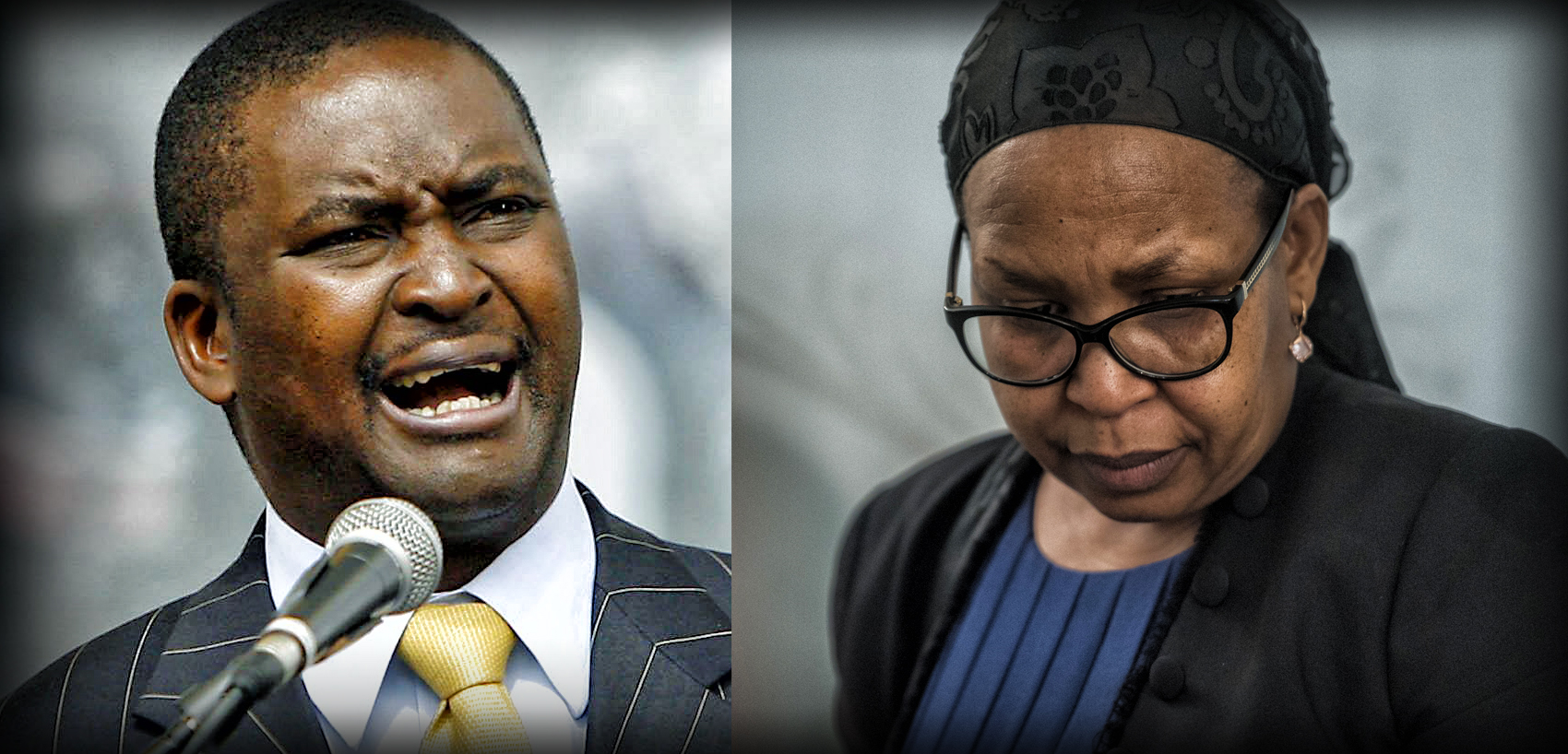
Brian Hlongwa and Qedani Mahlangu. (Photo: Gallo)
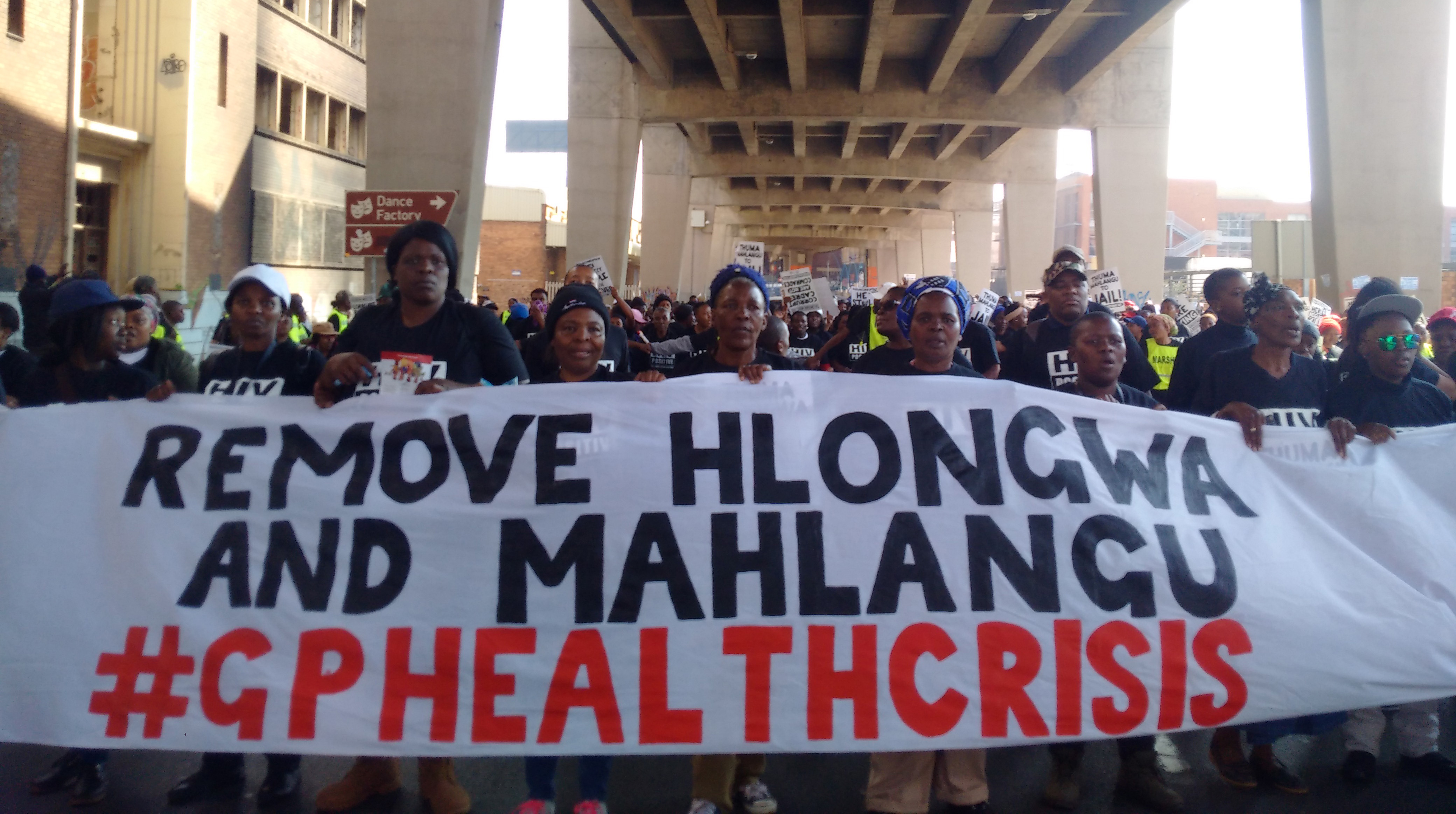
Hundreds of people marched on the Gauteng legislature in August 2018 where they called on the ANC to take action against former Health MECs Brian Hlongwa and Qedani Mahlangu. (Photo: Bheki Simelane)
His successor, Qedani Mahlangu, held the position between 2009 and 2010, and again between 2014 and 2017. Her resignation in 2017 came in the wake of a report on the tragic and cruel deaths of over 100 patients transferred from Life Esidimeni to various NGOs in Gauteng, released by the Health Ombud.
In between Mahlangu’s two stints as MEC for health, the position was held by Ntombi Mekgwe (2010-2012) and Hope Papo (2012-2014).
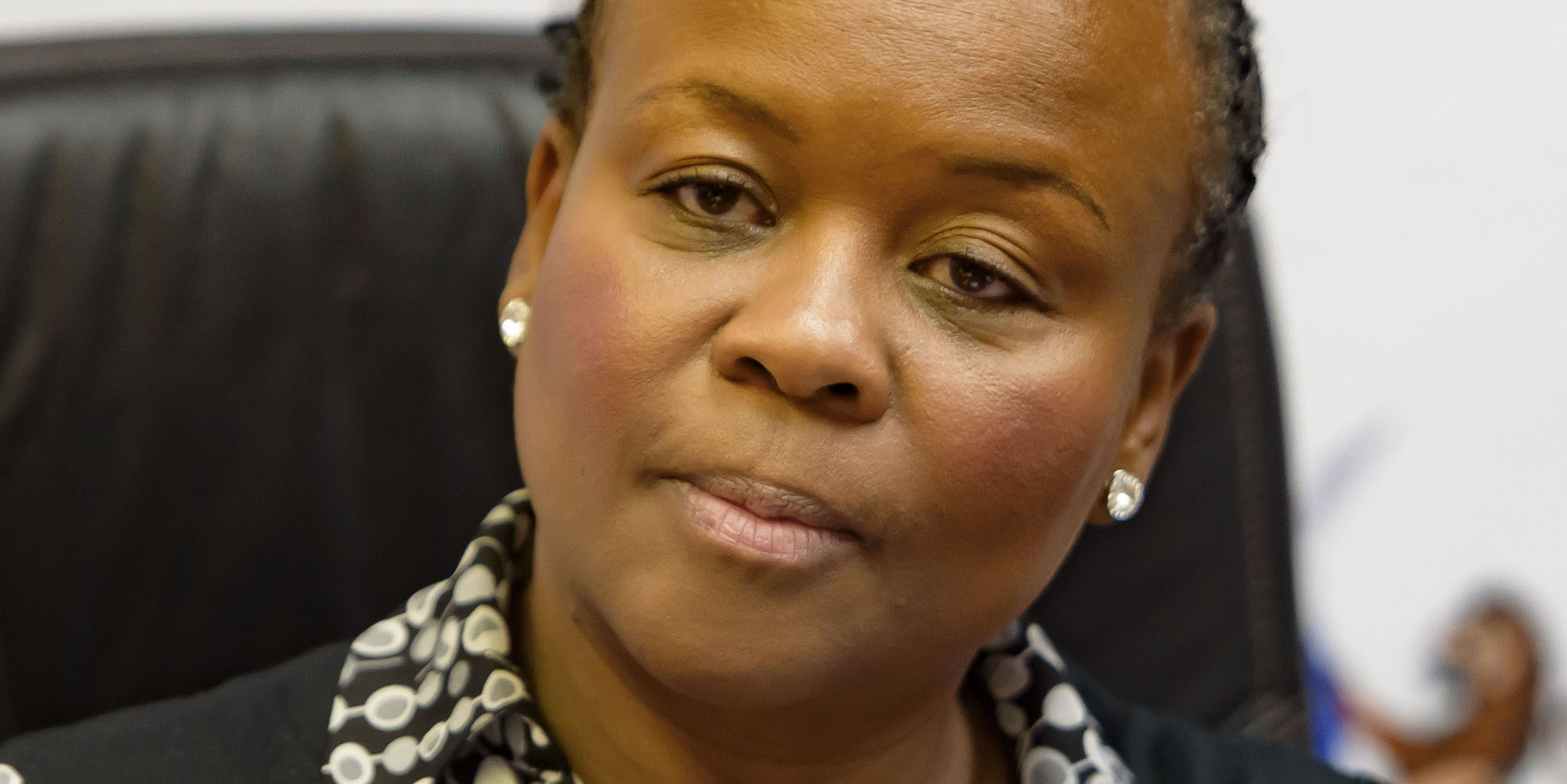
Gwen Ramokgopa. (Photo: Gallo Images / Beeld / Lisa Hnatowicz)
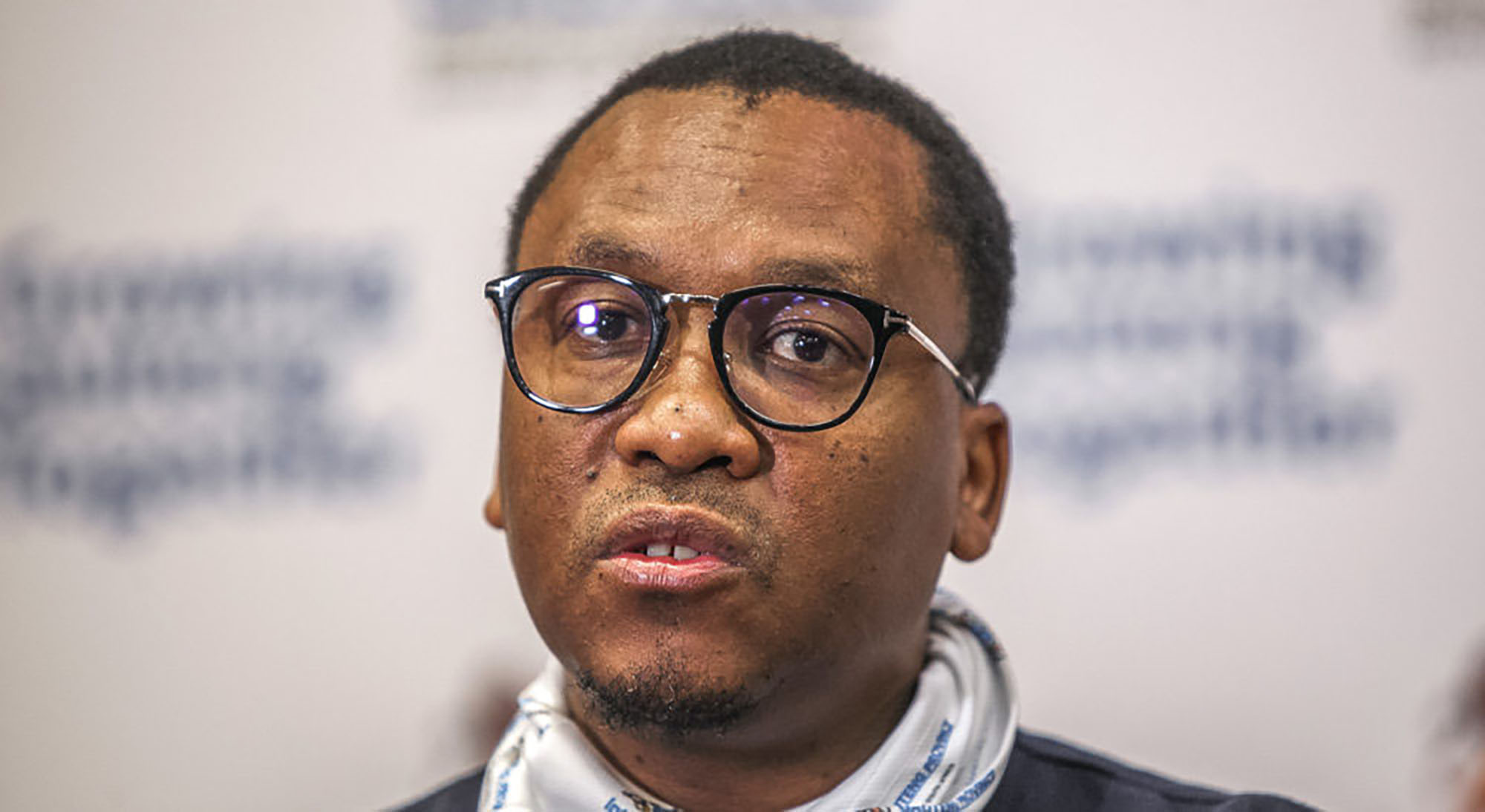
Dr Bandile Masuku. (Photo: Gallo Images / Sharon Seretlo)
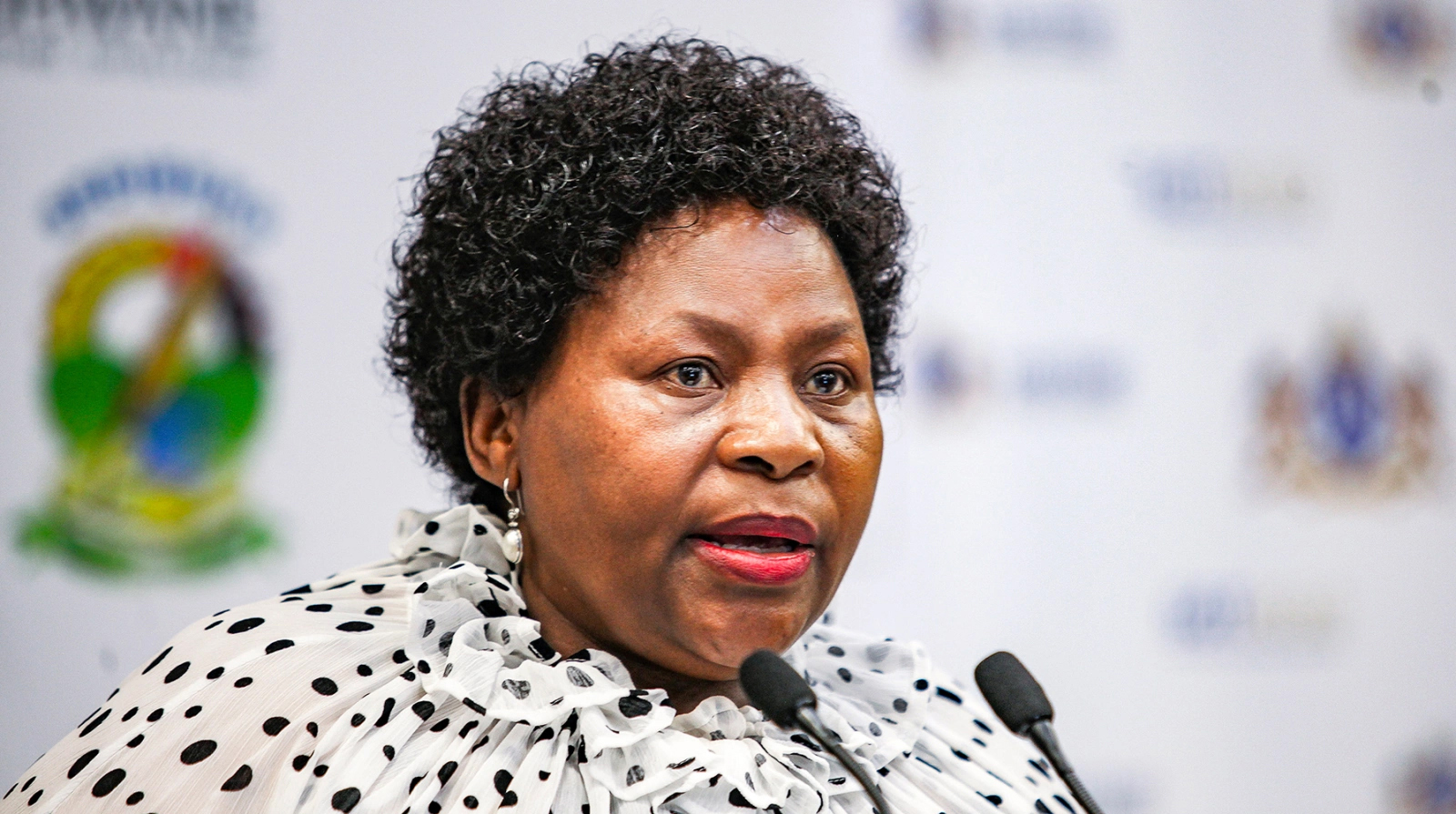
Gauteng Health MEC Nomathemba Mokgethi. (Photo: Gallo Images / Sharon Seretlo)
Gwen Ramokgopa took on the role between 2017 and 2019. She was succeeded by Bandile Masuku, who would later be fired for “failing to exercise oversight of controversial PPE contracts”, according to a Daily Maverick report from 9 October 2020.
The role has since been filled by Nomathemba Mokgethi. In a recent interview with GroundUp News, she described the problems facing the Gauteng public health system as “pressure”, but not a “crisis”. DM/MC
[hearken id=”daily-maverick/9472″]
"Information pertaining to Covid-19, vaccines, how to control the spread of the virus and potential treatments is ever-changing. Under the South African Disaster Management Act Regulation 11(5)(c) it is prohibited to publish information through any medium with the intention to deceive people on government measures to address COVID-19. We are therefore disabling the comment section on this article in order to protect both the commenting member and ourselves from potential liability. Should you have additional information that you think we should know, please email [email protected]"






 Become an Insider
Become an Insider